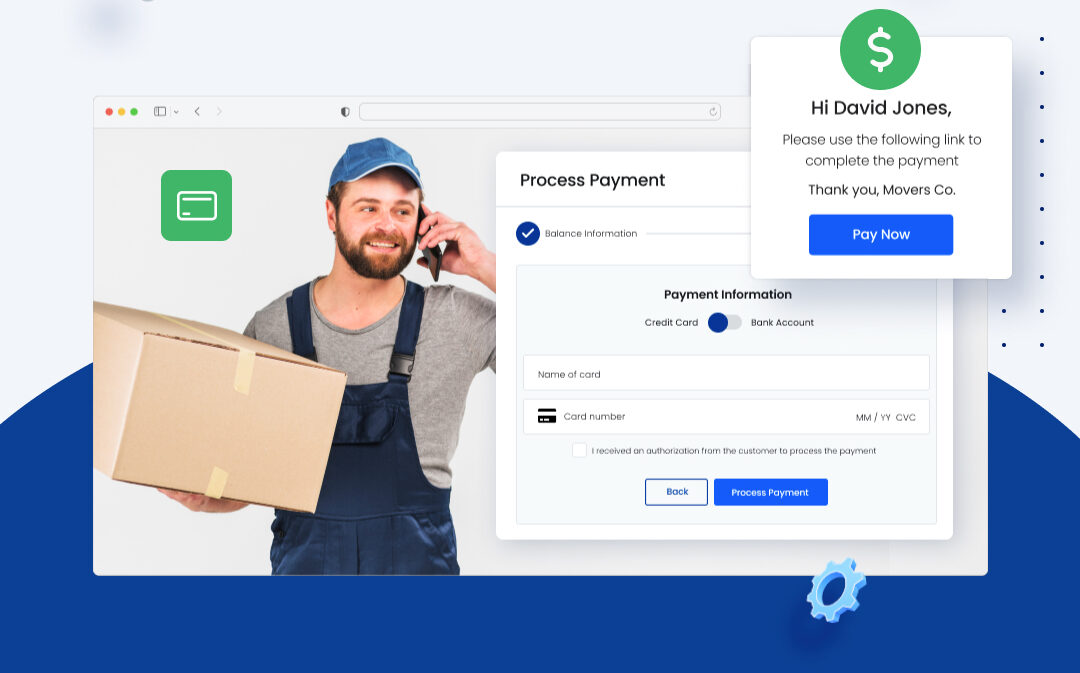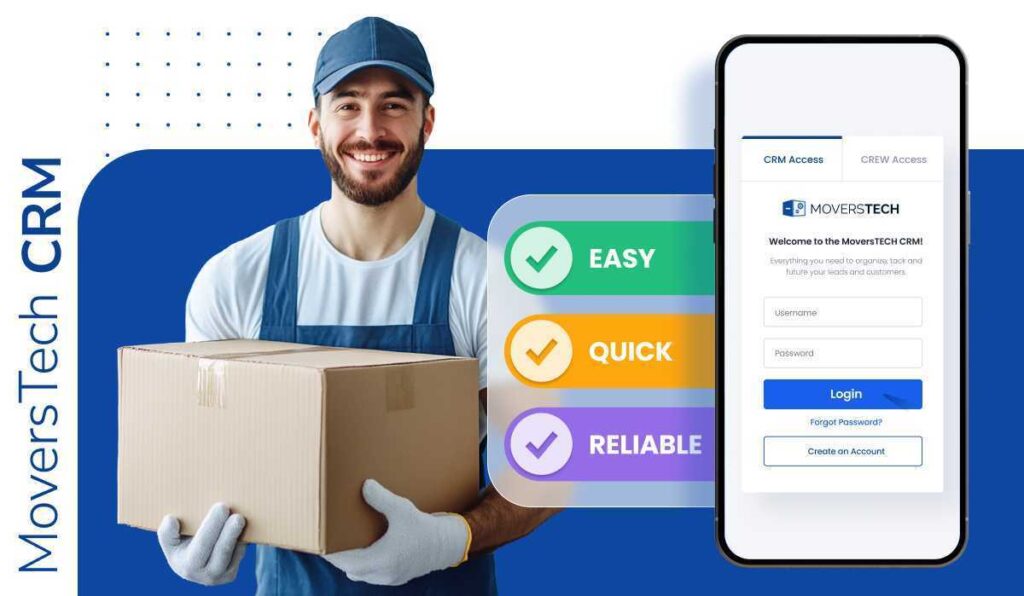How CRM and QuickBooks can simplify your moving company finance

Many movers feel unsure about digital tools. They’ve managed books with pen, paper, and spreadsheets for years, and change can feel unnecessary. But some companies are already using CRM and QuickBooks to speed up invoicing, track payments, and stay on top of cash flow. The question is simple: do these tools really make life easier, or are they just hype? A moving CRM keeps jobs, crews, and schedules in order, while QuickBooks organizes income and expenses. Used together, CRM and QuickBooks show how automation can simplify your moving company finances and free you from constant paperwork.
What is QuickBooks, really?
Think of QuickBooks as a digital bookkeeper for your moving company. It tracks income, expenses, and invoices, while also keeping an eye on overdue bills that need attention. Instead of stacks of paper or endless spreadsheets, you get a clear view of where your money is going.
For movers, this matters because staying organized with finances is the difference between growth and constant stress. When you connect CRM and QuickBooks, your jobs and payments flow together instead of sitting in separate systems. Tools that handle scheduling, payment processing, and invoices for moving companies make it far easier to keep finances accurate without adding more work to your day.
QuickBooks also simplifies tax season by organizing records in advance, so filing becomes less overwhelming. And because everything is stored digitally, you can access your financial data anytime without digging through piles of paperwork.
Where CRM fits in
QuickBooks may handle the numbers, but it doesn’t keep track of who’s moving, when, or with which crew. That’s where a CRM comes in. A moving CRM organizes customer details, job schedules, trucks, and teams all in one system. This reduces mistakes, keeps communication clear, and makes sure no detail slips through the cracks.
When you connect CRM and QuickBooks, the organization goes even further. Jobs that are scheduled in the CRM flow directly into your financial records without extra steps. This also makes it easier to handle payments. Features like card processing in moving CRM let customers pay by card in person, online, or over the phone, while QuickBooks records the transaction automatically. You also get a full history of customer interactions, so disputes or billing questions are easier to resolve. With better visibility, you can track performance by crew, job type, or revenue source, all from the same system. Together, the two systems turn messy admin into a smooth process.
The power of integration: CRM and QuickBooks together
On their own, QuickBooks and a CRM already make life easier. The problem is that when they work separately, your staff ends up entering the same details twice: once when booking the job in the CRM, and again when creating the invoice or recording the payment in QuickBooks. That’s where mistakes creep in and you waste time.
By integrating CRM and QuickBooks, the two systems work as one:
- Automatic job details – Customer names, dates, and totals flow directly from the CRM into QuickBooks with no retyping.
- Instant invoicing – Jobs booked in the CRM generate invoices in QuickBooks automatically. Automated invoicing can also cut the time it takes to process payments by 75% compared to manual billing.
- Real-time payment sync – Whether customers pay online, by card, or over the phone, the CRM records it and QuickBooks updates instantly.
- Up-to-date reports – Profit and loss statements, cash flow, and overdue balances reflect the most recent job and payment activity.
Here’s what it looks like in practice: a lead enters the CRM, the job is booked, QuickBooks builds the invoice, the customer pays with a click, and your books update right away. From start to finish, everything connects in one smooth process.

The real benefits for a moving company owner
At the end of the day, features don’t matter unless they make your life as an owner easier. Integrating CRM and QuickBooks delivers results you can measure every day. Beyond saving time, it gives you the peace of mind that your finances are accurate and up to date without constant oversight. It also helps you stay consistent, so every customer gets the same smooth experience from booking to payment.
When you integrate CRM and QuickBooks, you will:
- Save time. No more double entry or endless paperwork. Your staff can focus on customers instead of typing numbers twice. Daily tasks that once took hours can now be finished in minutes.
- Make fewer mistakes. With jobs, invoices, and payments syncing automatically, records stay accurate without extra effort. Errors that used to cause stress and delays are avoided. Consistency across systems builds trust with your customers.
- Improve cash flow. Automated reminders for overdue bills help you collect faster and keep money moving. You always know which accounts need attention. Having this visibility means you can plan expenses with more confidence.
- See profit clearly. With data from CRM and QuickBooks, you know at a glance if your company is making or losing money. Clear reporting helps you plan better and make smarter decisions. It also gives you proof of performance if you need financing or investors.
CRM and QuickBooks: Old-school values, new-school tools
Successful moving companies are built on trust, discipline, and customer service. Those values never change. What does change is how you manage the behind-the-scenes work. Using CRM and QuickBooks doesn’t replace your team. It replaces the paperwork that slows them down. When your operations and finances connect, you spend less time fixing mistakes and more time running the business. Automation isn’t about cutting corners. It’s about giving you a clear picture of your money and the confidence to make better decisions and manage moving company finances effectively. For movers who want to grow, CRM and QuickBooks make managing company finances simpler, faster, and more reliable.
Stay Informed
Subscribe for industry
news & updates
"*" indicates required fields
